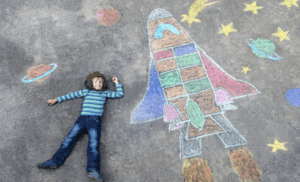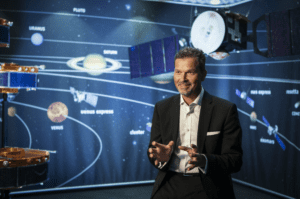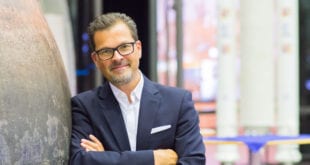by Frank M. Salzgeber, Head of Innovation and Ventures Office, ESA

As part of the partnership between SpaceWatch.Global and ESA Space Solutions, we have been granted permission to publish selected articles and texts. We are pleased to present “Why children make the best entrepreneurs”, originally published here on 10 Nov 2020.
The world needs entrepreneurs. Without them, our lives would be very different – imagine where we would be without people like Thomas Edison, Carl Benz and Steve Jobs! Yet many of the attributes of successful entrepreneurs, like curiosity and playfulness, are seen far more widely in children than in adults.
Why is that? Does that mean we are losing potential entrepreneurs somewhere along the road to adulthood? And what can we learn from this, both in the way we bring up children and how we support potential entrepreneurs as they enter the world of business?
Many of the features that distinguish entrepreneurs from the rest of us mirror the differences between children and adults. For a start, just like entrepreneurs, children are naturally curious – they’re fascinated with everything and won’t be fobbed off with a simple answer. Instead, they’ll keep asking questions and pushing to find out more. And they combine this love of exploration with fantasy that enables them to imagine novel ideas and solutions where adults typically do not.
Unlike most adults, children are not obsessed with time and timespans and routine. They don’t rush through life completing everything in a linear fashion and they don’t put boundaries around what they can achieve by considering how long they have to complete it. When they’re absorbed in something creative, such as building a castle out of Lego or Minecraft, nothing else matters. And when they start a game, they don’t plan everything ahead – instead, they’re happy to simply see what happens.
That’s because children don’t mind making mistakes. What they do fear is being made to feel bad for making mistakes through being chastised by parents or teachers. Instead, they want our trust and forgiveness. And when you give someone that, they will perform better next time.
There’s a saying that “The person who never makes a mistake will never make anything”. Children learn a lot from failure, whether it’s a house of wooden blocks toppling over or falling off their bicycle or skateboard. Ever wondered why kids are so quick at learning how to ski? It’s because they aren’t afraid to fail – they simply get up and try again, because they can see the exciting opportunity ahead.

This combination of innate curiosity, exploration and focussed pursuit of a dream is also what we find in entrepreneurs but few adults retain this from childhood. I believe that’s because we are trained out of this approach through the way we are taught at school and the way our exam systems work, which doesn’t teach us to seek out alternative paths or solutions. Although that changes at university, where students are encouraged to take a more creative approach, by then for many it is too late. Adults also tend to exploit rather than explore, in that they seek to make existing things quicker, faster and lighter. But without exploration alongside exploitation, nothing truly new emerges.
Kids are amazing! Everyone that has one knows this. I am father of twins, Lucas and Johannes and they remind me every day what connecting curiosity and fantasy means. We need to allow potential entrepreneurs to do this too – to see solutions where other people do not and to create products where others don’t expect something to emerge. I think this is something we all have inside us, but we need to find our own way to let it happen. In the meantime, we need to foster it in others – just as parents can encourage it in their children – whether they are in our own businesses or in the businesses we support through schemes such as incubation.
Simply providing money is not enough. We also need to provide a nurturing environment that allows mistakes to happen, with space for creativity and exploration. This has always been our approach through ESA Space Solutions and our incubation programme, where we look at the people applying, not just at the solutions they are proposing to develop. There are no KPIs for creativity and curiosity, but in the same way as with children, entrepreneurs need to continue to be curious and creative, as this is where truly revolutionary new services and products will come from.





